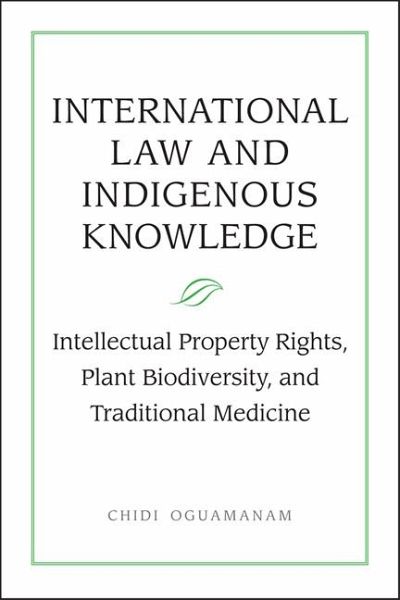
International Law and Indigenous Knowledge
Intellectual Property, Plant Biodiversity, and Traditional Medicine
Versandkostenfrei!
Versandfertig in über 4 Wochen
47,99 €
inkl. MwSt.

PAYBACK Punkte
24 °P sammeln!
In International Law and Indigenous Knowledge, Chidi Oguamanan argues that Indigenous knowledge has posed a crisis of legitimacy for the intellectual property system that calls for a rethinking of the intellectual property jurisprudence in a cross-cultural direction.












